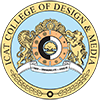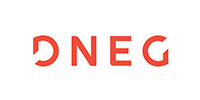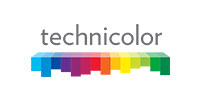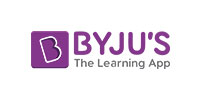
Course Overview
Come Down for the Most Comprehensive Game Program
The Bachelor's Degree in Game Design and Development at ICAT is a full-time program that prepares students to independently work through the entire pipeline of game development, starting from conceiving concepts to programming it.
The program combines the skills of Game Art, Game Design, and Game Development, widening the opportunities for the students. It provides an all-round knowledge from traditional art to digital art (2D & 3D), the various techniques employed in game art, the game design principles, and programming games for various platforms. The intense practice offered by the program helps students in seeking a vast career, be it as a 3D Game Artist, Level Designer, or Plugin/Tool Developer.

Why Game Design and Development?
Here are the Most Appreciated and Rewarding Jobs
In India, we have professional teams of digital gamers who compete with global teams. The flair for games has increased the number of gamers to more than 250 million. The Game industry has such a huge number of gamers with the introduction of 4G and 5G networks, increasing use of smartphones and tablets, and fresh technologies that allures the gamers.
Not only there is a huge increase in the number of gamers, the number of game giants setting up their development unit in India has also increased. Microsoft, Nvidia, UbiSoft, Zynga, Electronic Arts, Disney, Playdom, Sony, Digital Chocolate, and many more today have their unit in India, increasing the need for skilled professionals. It’s now the right time to build the game making skills and grab a promising job.
Curriculum
The Learning Curve
Dear Student,Get Admission / Fees Details
* Required Fields
Skills to Build
Skills to Seek as a Game Design and Development Professional
-

Game Design - Research, Conceptualization
-

Game Art - Visualization, Traditional Art Mediums
-

Digital Tools - Photoshop, Illustrator, Maya, ZBrush, Substance Painter
-

Scripting / Programming Languages - C#, Java
-

Game Engines - Unity & Unreal
Teaching Methodology
Learning Beyond the Walls
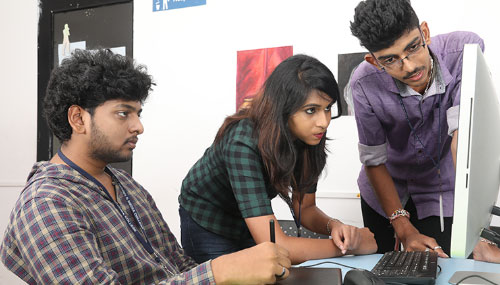
Research, Report, Remember
Learning through research, analysis, and reporting of any topic related to each module gives the students a sheer understanding of every related concept and helps in long retention of the knowledge sought.
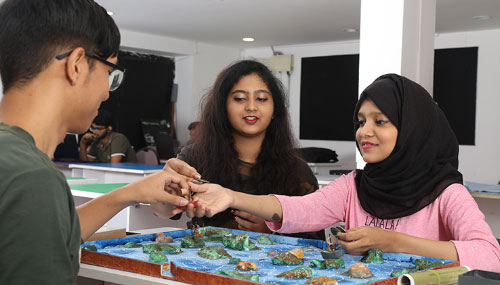
Knowledge Sharing among Peers
Discussing with like-minded people is always a unique way of knowledge sharing. And this happens at ICAT through group discussions with peers, in a guided environment that helps them give a concrete shape to their idea
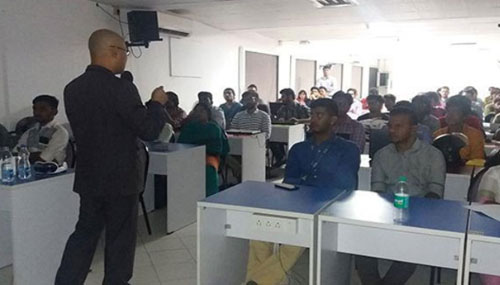
Learn the Techniques from Professionals
Professionals from reputed organizations associated with ICAT share their knowledge, skills and industrial processes with our students through seminars, workshops, and interactive sessions.
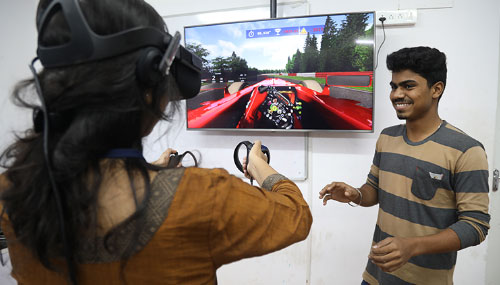
Watch the Industry Process Live
Industrial visits to game studios and related companies give the students the clarity on what exactly happens in the industry and what will be expected from them.
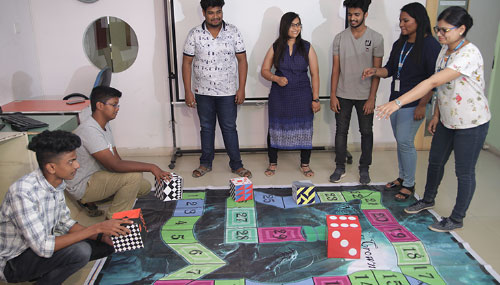
Inspire from What’s Around
Outdoor visits to historical places of art, architecture, and design and to renowned conferences and art galleries inspire the creator in students to give shape to the impossible.
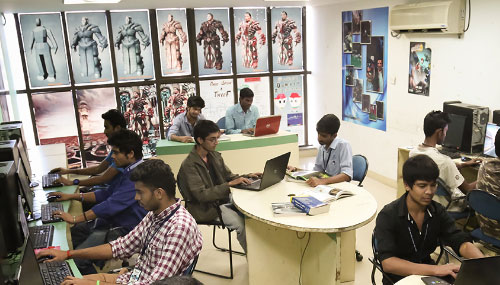
Get the Cutting-Edge from Feedbacks
The students of Game Design and Development showcase their works to general audience and to professionals to get their feedback. This helps the students to understand the expectations of the target audience and the industry, and groom accordingly.
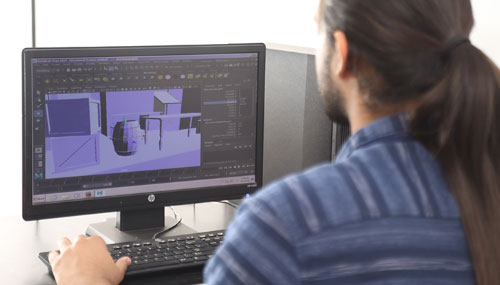
Project Based Learning
At ICAT, we follow Project Based Learning (PBL), an enthusiastic, exciting and effective learning style that engage students in building their skills through extensive hands-on experience in developing a product based on the current industry trends.
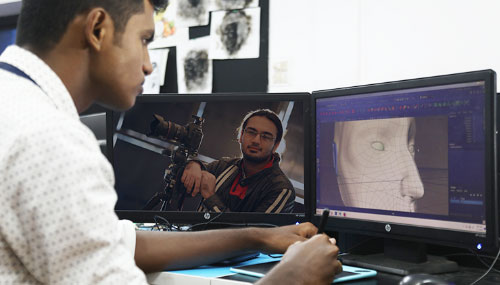
Practice Real Time
The curriculum at ICAT insists students to take up an internship in any related organization to get a clear and early insight of the industry, and build confidence to take up a career.
Student Awards
Rise and Shine
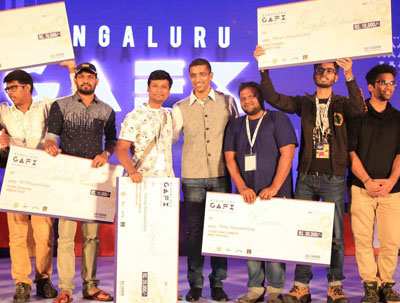
ICAT Student Won First PrizeGAFX CONFERENCE |
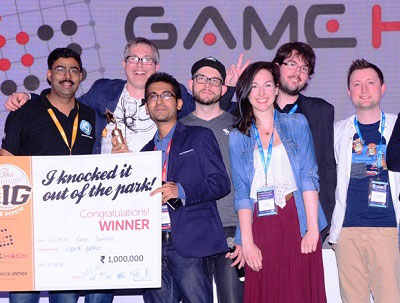
ICAT Alumni Wins a MillionPocket Gamer Connects |
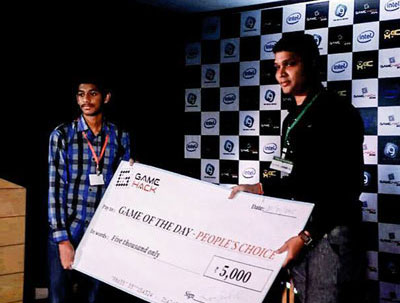
ICAT Student Won 2nd prize - ‘Black Hole’Gamehack |
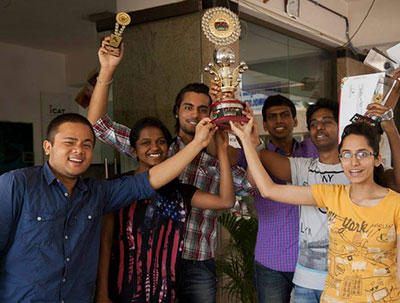
ICAT Students Won Runner-up AwardLa Fete Cultural Fest |
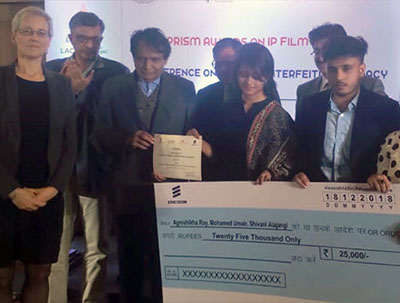
ICAT Student Won Runner-upIPGAF Competition |
Learning Facilities
Practical Learning

Learn by Doing – Right from the Basics
The industry-standard facilities at ICAT campuses give the Game students a perfect environment to explore the art, design and development techniques in game building.

Build the Artistic Skills
The Game students have access to Art and Design studios, where they get to their seek first-hand experience in design.

High-Configured Machines to Probe Your Ideas
The students are given the perfect environment to experiment their ideas and understand the nuances of digital tools at the IT labs and with student laptops that are loaded with all the necessary industry-standard software.

Learn through Play
The Game students have access to an exclusive Gaming Lounge in the campuses that let them understand the gameplay and different aspects of famous games and learn from them.

The Knowledge Repository
Right from history of games to game building with latest technology, the students have access to all game building information through 100s of books and magazines. This helps them research beyond the class lectures and gain immense knowledge of the industry and current trends.

Common to All Departments
In addition to the specific facilities for each department, the campuses of ICAT College are loaded with spacious classrooms, common library with essential readings, locker facilities for students, air-conditioned halls, personal tutoring space, common working zone, students’ lounge, and so on.
Student Testimonial
Our Students Say
Alumni Success
Shining Stars
-
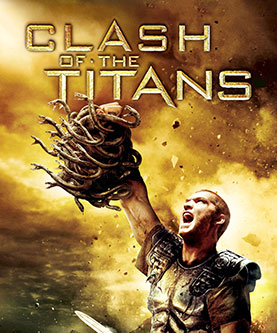
 Rajakanna
Rajakanna -
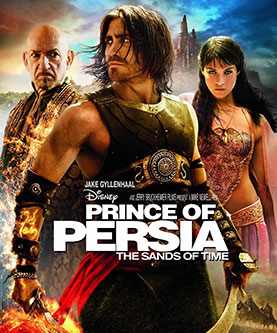
 Somasundaram
Somasundaram -
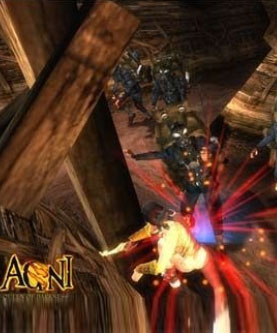
 Santosh Arya
Santosh Arya -
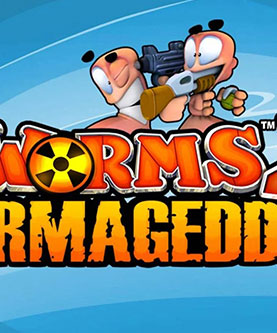
 Shukla Jayant Triveni
Shukla Jayant Triveni -
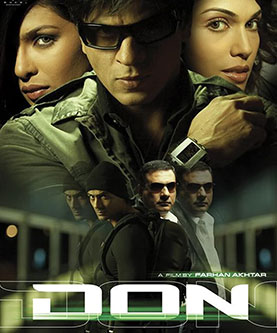
 Devrishi
Devrishi
Career Opportunities
Get Placed as a...
With an exclusive Placement Cell that holds a record of 100% placement, till date, we assure best jobs for every student who have gathered their skills and are ready to take up the challenges of the industry.
As a Bachelor's Degree Game Design and Development graduate, the students can seek opportunities in well-known companies like TCS, Ubisoft, Sony, Rockstar Games, Technicolor, Electronic Arts, TechTree, etc similar to the alumni of ICAT. Also as the alumni, they can seek overseas career in firms like Magic Leap. The students can take up a role as:
 Concept Artist
Concept Artist Game Designer
Game Designer 3D Low Polygon Modeler
3D Low Polygon Modeler Texture Artist
Texture Artist Game Artist
Game Artist
 Environment Artist
Environment Artist Effects Animator
Effects Animator Character Animator
Character Animator Level Designer
Level Designer Game Play Programmer
Game Play Programmer
Why Choose ICAT
Only at ICAT
The focus the program gives towards futuristic technologies and the global knowledge that veterans in our knowledge brigade brings help students stand apart as best in the industry.
Above these, the opportunity to work on Dissertations, create Portfolio, and take up Internship with renowned companies gives the sheer confidence and a cutting edge as an animation professional.
 100% placement
100% placement world-class curriculum
world-class curriculum Degree certified by eminent university
Degree certified by eminent university Highly equipped labs
Highly equipped labs frequent sessions from industry professionals
frequent sessions from industry professionals showcase events give the best learning experience
showcase events give the best learning experience
Top Placements
Meet Our Shining Stars
Top Recruiters
We Collaborate with 500+ Leading companies

Application Process
Become an ICATian
Step 1 : Fill the application form
Apply by Filling Application form.
Step 2 : Interview Process
Go through a direct communication with the Admission Team
Step 3 : Join ICAT
An offer letter will be send. Secure your seat by paying the admission fee.
International Professionals
Learn from the Veterans’ Perspective
| Name | Designation | Company |
|---|---|---|
| ERNEST ADAMS | Game Design Consultant | Trainer and Author of several best-selling books in the Gaming industry |
| Prof. WILLIAM CAMPBELL | Associate Professor | School of Computing, Mathematics & Digital Technology, Birmingham City University, UK |
| Prof. ANDREW WILSON | Program Leader | Computer Games Technology, Birmingham City University, UK |
Indian Professionals
| Name | Designation | Company |
|---|---|---|
| SENTHIL MURUGAN | Technical Lead | Wipro Technologies |
| SHARAT CHANDRA AITHAL | Game Developer | Worked on SmackDownVs Raw 2009 (PSP), Metro 2033 (PC), Darksiders (PC), Marvel Superhero Squad (X360), Homefront (Ps3) |
| SUJATHA NAGARAJAN | Game Programmer | Graxal Games |
| SOMASUNDARA PANDIAN.V | 3D Programmer & Researcher | Bumo3dr |
| CHELLADURAI N | Gameplay Programmer | Friends Learn |
| ELAM PARITHI ARUL | Mobile Developer | CompuSystems |
| ISHKARAN SINGH | Game Programmer | Ubisoft |
| NEELANCHALA | Mobile Game Developer | Hungama.Com |
| VRUSHKETAN | Game Designer | Digital Chocolate |
| NEERAJ KUMAR | Game Programmer | |
| BHOOPALAN | UX Specialist | |
| SRIKANTH JNSV | Unity Game Programmer | |
| Rupesh Mandke | Graphics Engineer | Root 16 Interactive Pvt. Ltd. |
| Senthil Kumar | Founder & Game Designer | Madiee Board Games |
| Raghu | Game Artist | Quenero |
| Saravanan | Game Artist | Quenero |
Campus Location
Study at Any of Our 3 State-of-the-Art Campuses
-
Chennai
153, Santhome High Road, Mylapore, Chennai - 600 004.
044 - 4293 4293, +91 - 95001 28555

-
Bangalore
424, Bommanahalli, Hosur Main Road, Bangalore - 560 068.
080 - 4110 7755, +91 - 96111 73607

-
Hyderabad
H.NO.3-1-30, S.Y.No:34/2 and 35, Bahadurguda, Saroornagar, L.B.Nagar, R.R.District, Hyderabad - 500 074
040 - 2447 7755, +91 - 75694 34552

FAQ
Still need anything to know?
This is the first item's accordion body. It is shown by default, until the collapse plugin adds the appropriate classes that we use to style each element. These classes control the overall appearance, as well as the showing and hiding via CSS transitions. You can modify any of this with custom CSS or overriding our default variables. It's also worth noting that just about any HTML can go within the .accordion-body, though the transition does limit overflow.
This is the second item's accordion body. It is hidden by default, until the collapse plugin adds the appropriate classes that we use to style each element. These classes control the overall appearance, as well as the showing and hiding via CSS transitions. You can modify any of this with custom CSS or overriding our default variables. It's also worth noting that just about any HTML can go within the .accordion-body, though the transition does limit overflow.
This is the third item's accordion body. It is hidden by default, until the collapse plugin adds the appropriate classes that we use to style each element. These classes control the overall appearance, as well as the showing and hiding via CSS transitions. You can modify any of this with custom CSS or overriding our default variables. It's also worth noting that just about any HTML can go within the .accordion-body, though the transition does limit overflow.
